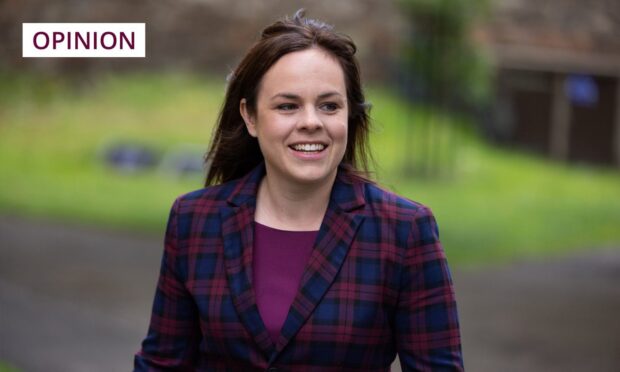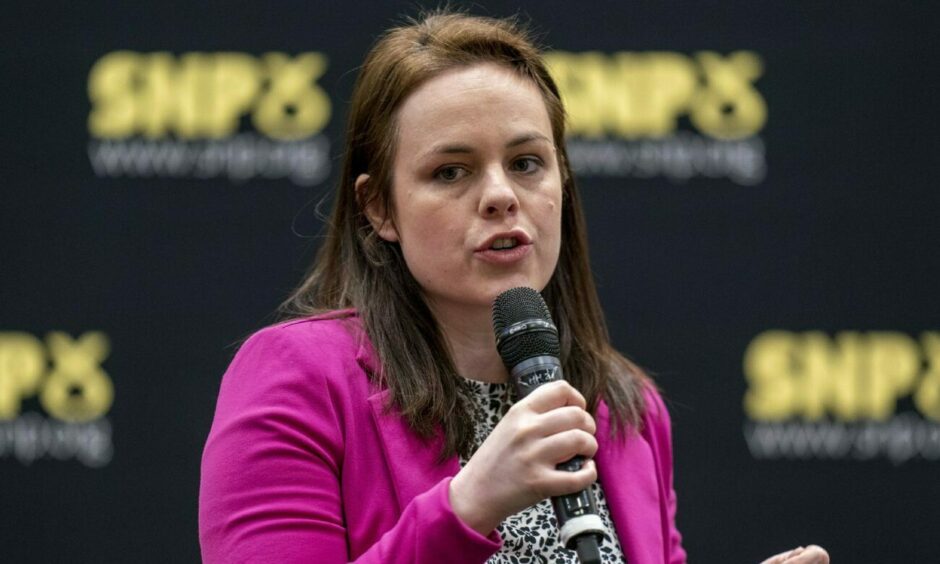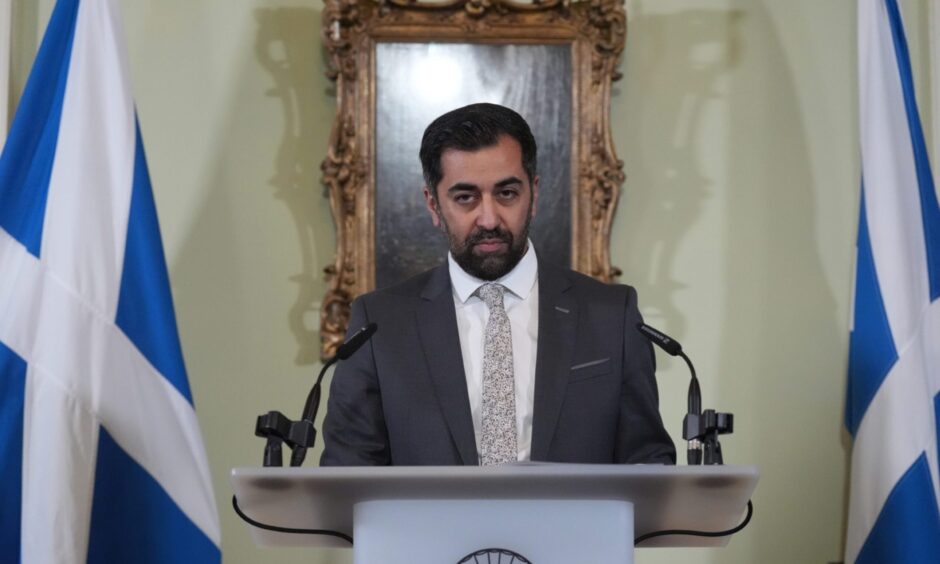Scottish politics has found itself in a time warp, with the views of the SNP’s Kate Forbes on topics like gay marriage once again in the news.
In last year’s leadership contest – yes, it was really just 13 months ago – Ms Forbes’ campaign ran into trouble only hours after it was launched when she told reporters she would have opposed equal marriage laws had she been an MSP at the time.
Meanwhile, a fellow Nat MP accused her of being a “sex-obsessed religious fundamentalist” when she said that having children outside of marriage is “wrong” according to her faith.
It prompted a number of prominent backers to withdraw their support from Ms Forbes’ campaign to become first minister.
No surprise that Kate Forbes’ views are front and centre once more
Privately, senior members of the party told me that if asked, her comments would have forced them to refuse to serve in any government she led.
No surprise then that as she considers a second go at becoming leader of SNP just over a year since she lost out to Humza Yousaf, Kate Forbes’ views on these subjects have once again prompted discussion about her suitability to occupy Bute House.
Those in Holyrood who have spent time with Kate Forbes are consistent in their assessment. She is a professional, extremely able politician who is a kind and thoughtful colleague.
A member of the socially-conservative, evangelical Free Church of Scotland, her beliefs on equal rights of marriage for gay Scots are not founded in the kind of ugly bigotry that would see someone automatically disqualified from representing any normal political party.
Instead, Ms Forbes’ faith has instilled honestly-held beliefs about the institutions of marriage and family.
In a democracy, no matter how out of step they may be, private citizens have every right to expect freedom to hold their own beliefs.
But in last year’s leadership contest, Kate Forbes made a clear choice about how she would deal with these issues as a leader, not a private citizen.
Pressed on how she would have voted had she been an MSP when equal marriage legislation was brought before parliament, Ms Forbes could have answered questions by making a clear separation between how she lives her life and how, as First Minister, she would deal with the issue as a matter of public policy.
Instead, in saying she would have voted against equal marriage, Ms Forbes indicated the state should continue to treat the love and relationships of LGBT+ Scots as inferior.
That the state, in legislating for what kind of love can be recognised in law, can discriminate against some people.
Can a modern Scotland, where discrimination of this kind is rightly consigned to the history books, really be led by someone who is comfortable advocating this position?
Kate Forbes opened herself up to challenge
Some have attempted to suggest it is unfair for the media to scrutinise Ms Forbes over this issue, or that it is discriminatory for it to be used as an objection to her becoming first minister.
But Ms Forbes is not a private citizen. If she became first minister, she would not even be a humble back bench member of parliament.
In setting out that she would have opposed attempts to end the discrimination of gay couples, Ms Forbes opened herself up to challenge.
Crucially, if she chooses to run in the race to succeed Mr Yousaf, she may become first minister with only a tiny minority of the country, less than 100,000 SNP members, having any kind of say at all about her suitability.
It is right therefore that the media is allowed to scrutinise this, just as it will Ms Forbes’ policies on the economy, the NHS or education.
Don’t underestimate abilities of Kate Forbes
Others say that these issues are simply a matter of conscience, and that there is a small number of debates in which they should enjoy freedom from scrutiny.
This stems from the tradition that political parties give their elected members a free vote.
But this cannot be a route to avoiding accountability, especially for a potential candidate for first minister.
These arguments also underestimate Ms Forbes’ abilities as a politician.
In 2020, with just a few hours notice, she calmly delivered the Scottish Government budget as the newly appointed finance secretary.
And while she apologised for any “pain” her comments in the 2023 election caused, Ms Forbes defended speaking honestly, saying the public wanted to hear “straight answers” from politicians.
With Scotland set to get its third first minister since 2021, any candidate seeking to replace Humza Yousaf will rightly have their ideas and policies challenged and tested.
Democracy demands that we don’t simply ignore these difficult subjects.













Conversation